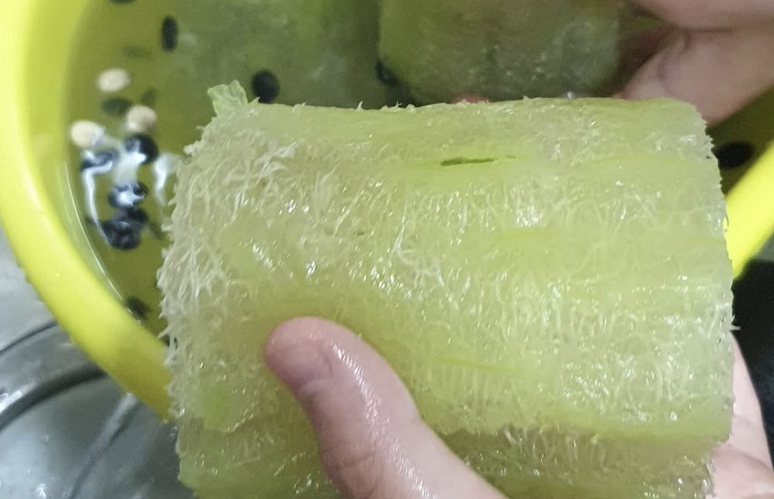| 일 | 월 | 화 | 수 | 목 | 금 | 토 |
|---|---|---|---|---|---|---|
| 1 | 2 | 3 | 4 | 5 | 6 | 7 |
| 8 | 9 | 10 | 11 | 12 | 13 | 14 |
| 15 | 16 | 17 | 18 | 19 | 20 | 21 |
| 22 | 23 | 24 | 25 | 26 | 27 | 28 |
| 29 | 30 | 31 |
- healthy korean recipes
- shihtzulife
- bracken safety
- how to cook bracken
- namul
- ShihTzuCare
- Shih Tzu
- perilla oil vegetables
- KoreanFood
- Seoul Catholic Church
- final Charye
- ancestral prayer
- korean side dish
- AsianVegetables
- AuthenticKoreanFood
- korean food culture
- KoreanGrandmaCooking
- Korean home cooking
- and grub worms destroyed her crop — yet she found hope and lessons for next year.
- gosari
- KoreanSideDish
- family story
- ending tradition
- Charye
- A heartfelt story from a 70-year-old Korean farmer grandma about her failed sweet-potato harvest. Heavy rain
- CambodiaTravel
- Korean Thanksgiving
- HealthyRecipes
- ancestral rites
- over-fertilization
- Today
- Total
Korean Grandma’s Cozy Life
🌿 Korean Loofah Sponge & Tea: From K-Lifestyle to Wellness 본문
🌿 Korean Loofah Sponge & Tea: From K-Lifestyle to Wellness
KoreanHalmeoni 2025. 9. 13. 09:00Discover how Koreans use loofah (수세미) not only as an eco-friendly sponge but also as a refreshing herbal tea. Learn the health benefits of Korean loofah tea, traditional preparation methods, and how this hidden K-wellness practice connects lifestyle, sustainability, and culture.
When most people outside Korea hear the word loofah, they imagine a bath sponge sold in eco-friendly shops. But in Korean daily life, the loofah (수세미, susemi) has been more than that:
👉 a zero-waste natural sponge for cleaning and skincare, and
👉 a refreshing herbal tea known as 수세미차 (susemi-cha), valued for its health benefits.

🌱 A Story of Resilience
Last summer, my small farm was flooded. Most of my vegetables were destroyed… but the loofah plant survived, hanging strong on the trellis.
That resilience reminded me of how Korean families once used every part of the loofah:
- the dried gourd as a natural household sponge, and
- the sliced, roasted pieces as a healing tea.
This tradition is part of K-lifestyle — connecting farming, health, and sustainability.

🍀 How Koreans Make Natural Loofah Sponge
In Korea, loofahs are often boiled, peeled, and dried to create everyday sponges.
Steps:
- Boil a mature loofah in water for 30 minutes.
- Peel the skin, remove seeds and pulp.
- Wash the fibrous skeleton and sun-dry for 3–4 days.
- Cut into small pieces for kitchen, bath, or skincare use.
Unlike synthetic sponges, these are 100% biodegradable and reflect Korea’s long-standing eco-friendly culture.





🔎 Drying vs. Boiling
- Sun-drying only → keeps seeds (good for replanting) but may smell or mold.
- Boiling + drying → cleaner, odor-free, and better for hygiene.
👉 That’s why most Korean homemakers preferred the boiling method.
☕ Korean Loofah Tea (수세미차)
Ingredients
- 10 g dried loofah slices
- 2 L water
Steps
- Slice loofah thin and sun-dry for 5–7 days.
- Toast or puff for a nutty aroma.
- Simmer 10 g with 2 L water for 20 minutes.
- Drink hot in winter or iced in summer.

🌿 Health Benefits of Loofah Tea
- Liver Detox & Hangover Relief – often used after gatherings
- Respiratory Support – eases coughs, phlegm, sore throat
- Digestive Aid – calms indigestion and bloating
- Energy Recovery – antioxidants restore vitality
- Weight-Friendly – hydrating and low in calories
- Blood Sugar Support – mentioned in traditional texts (not a medical substitute)
⚠️ Note: Folk remedies mention thyroid support, but scientific evidence is still limited.
🍵 Taste of Korean Loofah Tea
Loofah tea has a light, earthy flavor with a hint of cucumber, often described as clean and refreshing.
- First sip → mild and refreshing, with a slightly bitter edge
- Aftertaste → subtly sweet and clean, balancing the bitterness
- Toasted → develops a warm, nutty aroma with less raw bitterness
- Cold → a refreshing summer cooling tea
- Warm → soothing for the throat, gentle yet slightly bitter, making it a versatile drink for every season
🌸 Loofah in K-Culture
Globally, loofah is known as an eco sponge. But in Korea, it’s part of K-wellness:
- a symbol of resilience in farming,
- a traditional home remedy brewed as tea, and
- a sustainable lifestyle choice passed down through generations.
Just as K-pop and K-drama highlight Korean culture abroad, Korean herbal teas like loofah tea show another side of Korea — K-lifestyle and K-wellness.
🌱 A Closing Reflection
For me, loofah is more than just a plant. It’s a symbol of endurance — the only crop that survived the flood in my garden. By turning it into both a natural sponge and a soothing tea, I feel connected to the wisdom of older generations who lived in harmony with nature.
If you’d like to explore K-culture beyond entertainment, I encourage you to try Korean Loofah Sponge & Tea. It’s a small but meaningful way to experience the heart of K-lifestyle and wellness traditions. 🌿




